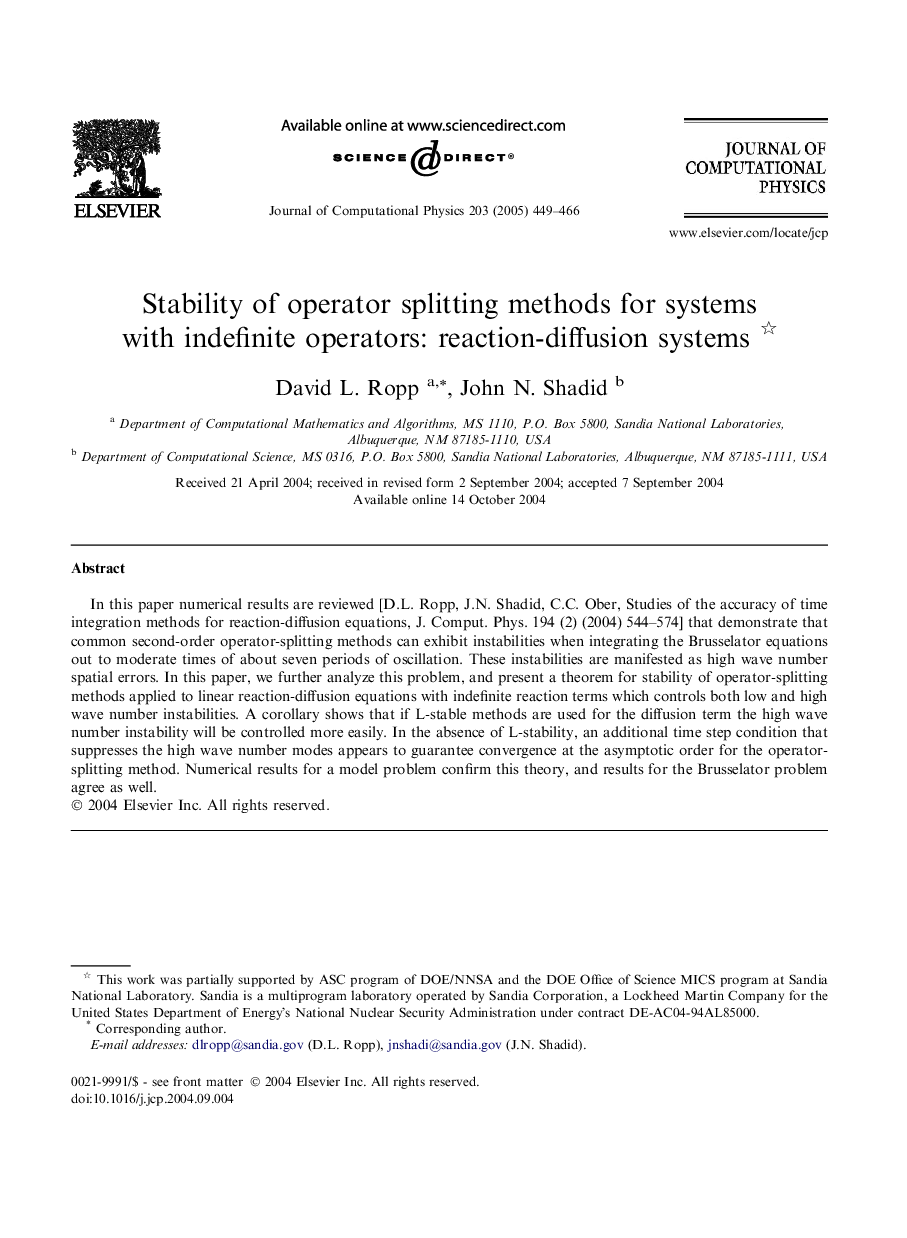| Article ID | Journal | Published Year | Pages | File Type |
|---|---|---|---|---|
| 10357391 | Journal of Computational Physics | 2005 | 18 Pages |
Abstract
In this paper numerical results are reviewed [D.L. Ropp, J.N. Shadid, C.C. Ober, Studies of the accuracy of time integration methods for reaction-diffusion equations, J. Comput. Phys. 194 (2) (2004) 544-574] that demonstrate that common second-order operator-splitting methods can exhibit instabilities when integrating the Brusselator equations out to moderate times of about seven periods of oscillation. These instabilities are manifested as high wave number spatial errors. In this paper, we further analyze this problem, and present a theorem for stability of operator-splitting methods applied to linear reaction-diffusion equations with indefinite reaction terms which controls both low and high wave number instabilities. A corollary shows that if L-stable methods are used for the diffusion term the high wave number instability will be controlled more easily. In the absence of L-stability, an additional time step condition that suppresses the high wave number modes appears to guarantee convergence at the asymptotic order for the operator-splitting method. Numerical results for a model problem confirm this theory, and results for the Brusselator problem agree as well.
Related Topics
Physical Sciences and Engineering
Computer Science
Computer Science Applications
Authors
David L. Ropp, John N. Shadid,
